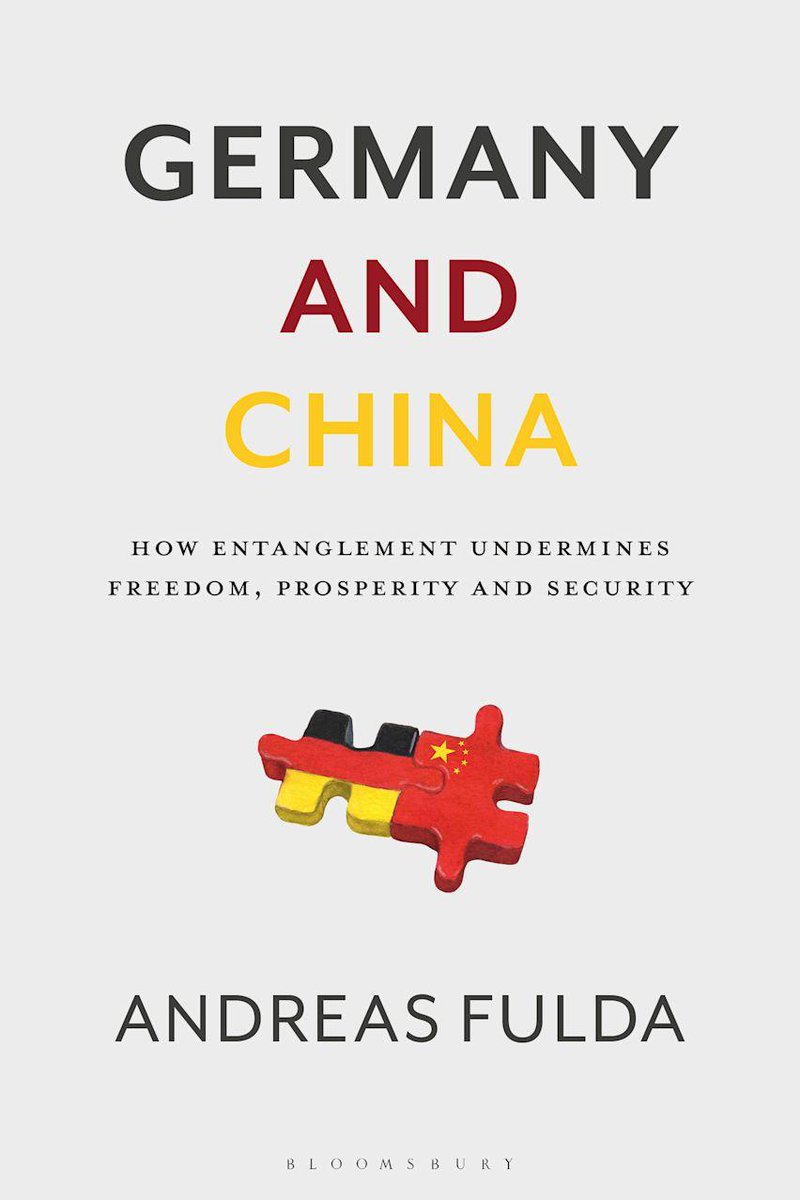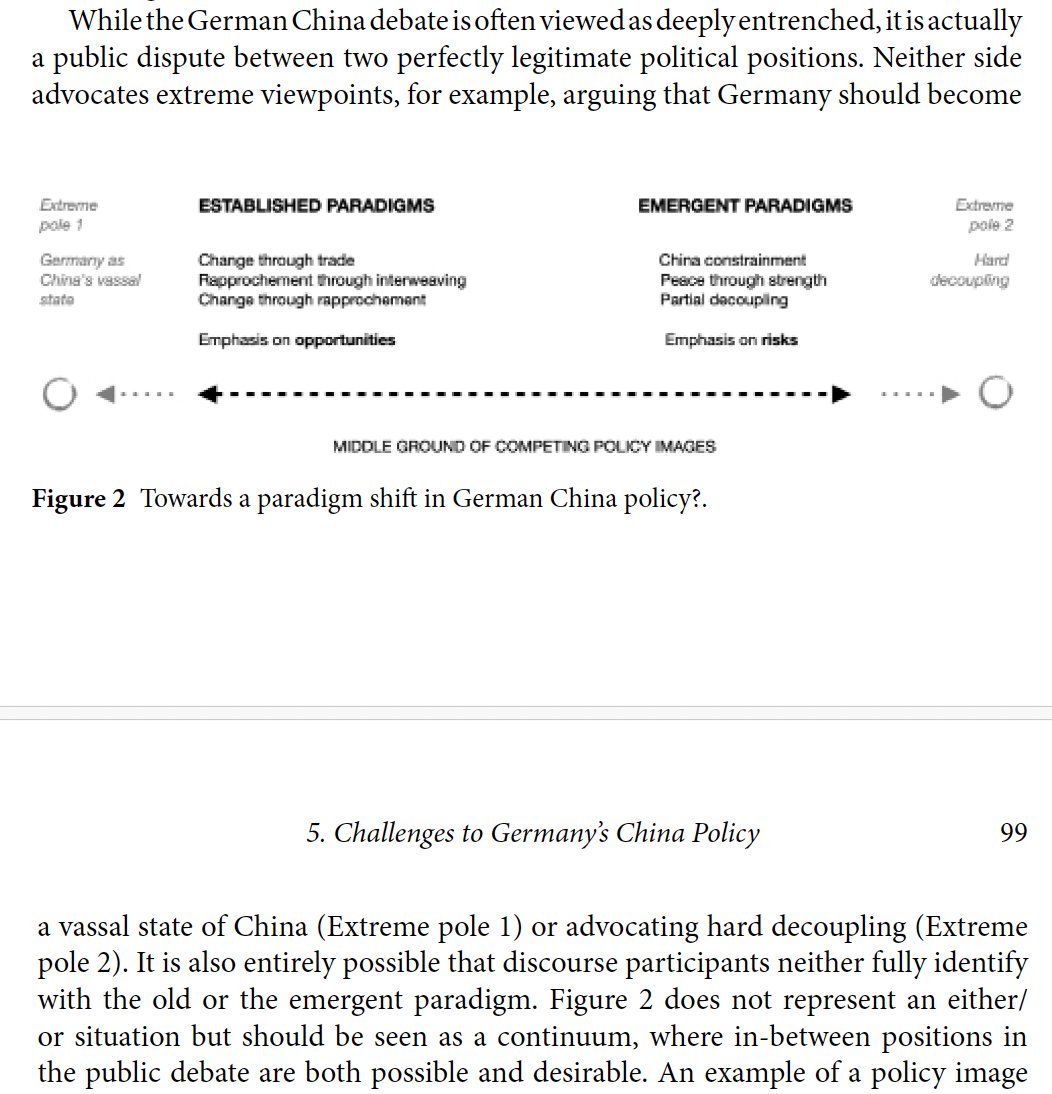There is no other way to put it: this article is an example of a dysfunctional and moralised discourse about threat frames in public policy. It's high time for us to move towards an evidence-based approach towards geopolitical risk management. A short🧵/1 carnegieendowment.org/research/2025/…
Efforts by politicians to 'persuade through fear appeals' are criticised. Drawing on McCarthy ('Red Scare') and George W. Bush ('Global War on Terror') the costs of 'instrumentalizing threats' are highlighted. The article then pivots to the case of China, but fails to convince /2 

While I appreciate that the author is most likely motivated by a desire to advance constructive 🇨🇳 engagement, I find it irritating that the overall argument is littered with logical fallacies. While they could be unintentional, they weaken the persuasiveness of the article /3
[Slippery slope] 'Threat inflation' is seen as strongly correlated to spikes in 'xenophobia and racism'. From a US-centric perspective threat frames are demonised and its users are painted as reckless or bigoted. The CCP's 'friend-enemy' worldview fuelling conflict is ignored /4
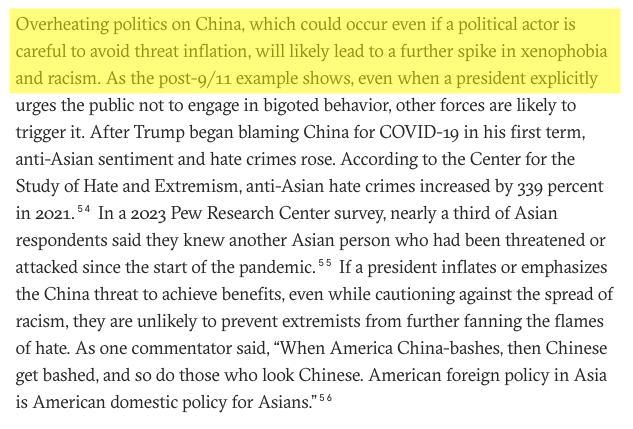
[Hasty Generalisation} The author draws problematic conclusions from the GWOT. Yes, it was a big blunder. But one can also overlearn from mistakes. Taking threats not serious enough - e.g. Syria under Assad - arguably led to a protracted civil war and the 2015 refugee crisis /5
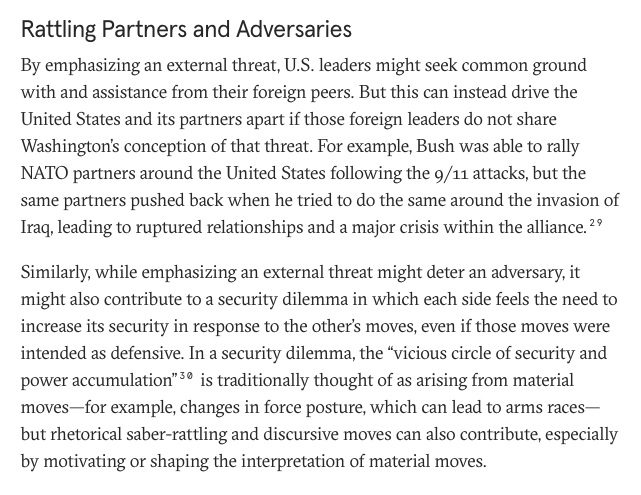
[False dichotomy] More worrisome, in the conclusion threat politics are framed as all-or-nothing (use it and risk peril, thus avoid it), ignoring the possibility of common-sense risk management (more about this later). This is the opposite of nuance and overly reductionist /6
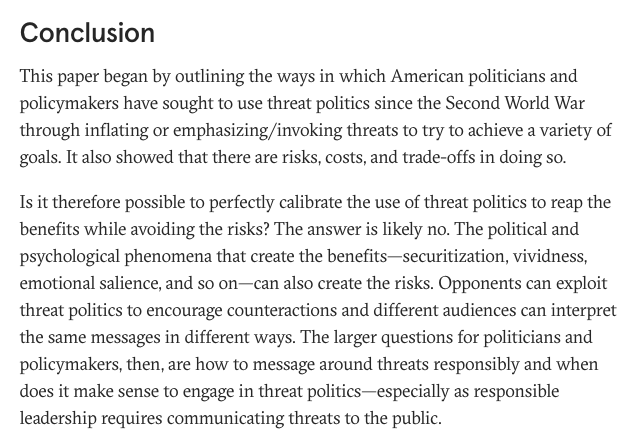
[Appeal to emotion] I find it rather ironic that the author warns against fear tactics but uses fear frames throughout the article (e.g. danger of 'fueling xenophobia or racism'; risking 'overt or covert conflict' with China), thus undermining the articles own logic /7

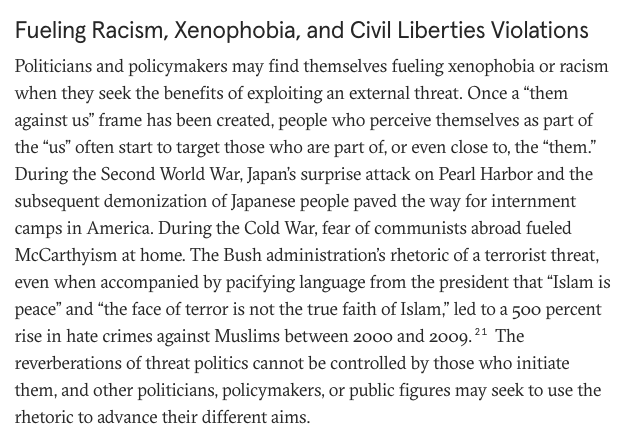

Contrary to the author's conclusion I would argue that it is possible to address real-world threats through evidence-based risk management. Based on what I call 'autocracy competence' we should be able to identify threats and assess whether they are low, medium or high risk /8
If risks are low, cooperation with China is not problematic. If the risk is moderate, it is advisable to seek advice and make informed decisions. When risks are high, e.g. basic research with potential military applications, it is better to decide against cooperation /9
But for risk management to work we need to have candid conversations. Those who delegitimise the use of threat frames arguably do us a disservice. I would like to end the 🧵with a link to Pottinger's excellent speech at Policy Exchange in 2020 /End policyexchange.org.uk/events/the-imp…
Please unroll @threadreaderapp
• • •
Missing some Tweet in this thread? You can try to
force a refresh





